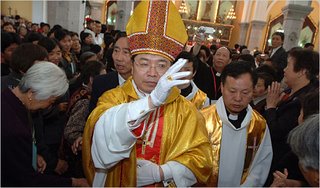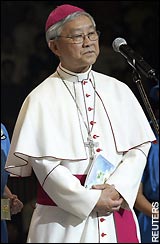We are in 2006. So, the Nineteen Nineties were in the last century. Let's review: India and Pakistan, their national governments having never signed the Nuclear Proliferation Treaty, exploded underground nuclear bombs. North Korea, having signed the NPT, withdrew from the treaty, announced the possession of nuclear bombs and demostrated the capability to shoot missile over the east coast of Japan. Rwanda, composed of two African ethnic groups, experienced a genocide where one group, the Hutu massacred systemically the other group, the Tutsi; United Nations peacekeepers in Rwanda did not intervene to stop the massacre or genocide. Yugoslavia, the Federal Republics of Serbia and Montenegro, caused an "internal displacement" of migrants and refugees out of the Serbia province of Kosovo; NATO ordered fighter airplanes to bomb Yugoslavia. Finally, multiple United Nations Security Council resolutions failed to uncover the fact that Iraq did not have any weapons of mass destruction by the late 1990s. Fast forward to 2006. There are changes of governments in Yugoslavia, Afghanistan and Iraq after their attack by western coalition armed forces. India and Pakistan have friendlier relations with each other and with America. The U.S., China, Russia, Japan and Republic of Korea have engaged North Korea in the hopes of denuclearizing North Korea. The new cases are Iran and Sudan. Iran, having signed the NPT, announced ongoing enrichment of uranium and refused NPT monitors sent by United Nations International Atomic Energy Commission. The U.S., Russia, U.K., France and Germany have engaged Iran in the hopes of stopping Iranian enrichment of uranium. Sudan is causing an "internal displacement" of migrants and refugees out of Darfur province; actor George Clooney called the Darfur crisis the first genocide in the Twenty-First Century. I don't know what's going to happen. Compared to North Korea, Iran is richer in agriculture and fossil fuel. There is no famine in Iran. In fact, Iran learned lessons from North Korean President Kim's negotiations with the Clinton government of the U.S. So much so, the Bush government has not managed to isolate Iran from the world. Compared to Yugoslavia, Sudan is an African country in the Sahara Desert with multiple African and Arab ethnic and religious groups. There is fossil fuel in Sudan and there is a civil war. Remember United Nations history: In the Cold War, the U.S. and U.S.S.R. vetoed each other's Security Council resolutions all the time. How many times did Iraq refuse to comply with Security Council resolutions before coalition armed forces invaded Iraq? However, remember Yugoslavia. NATO bombed Serbia without any U.N. approval. So, how will the situations in Iran and Sudan resolve? Regarding Iran: Will it be stalemate and another "cold war"? Will coalition armed forces bomb and destroy Iranian nuclear research facilities? Will Iran desist? Regarding Sudan: Will there be a peace treaty on Darfur? Will internal displacement and killing continue? Will coalition armed forces fight and disarm Sudanese-sponsored militia in Darfur? Will the western world accept more refugees from Sudan? Only time will tell.
 Liu Xinhong on Wednesday morning was consecrated as bishop of Wuhu, in Anhui Province, under the rules of the Chinese Catholic Patriotic Association. Bishops loyal to the Patriotic Association also consecrated Ma Yinling on Sunday as bishop of Kunming. Here's the politics. Remember "separation of church and state"? Remember opponents of Catholic John F. Kennedy circulated rumours that if he were elected American president, Kennedy would have to defer to the Pope? On the other hand, remember "freedom of association"? Or "freedom of religion"? Very few governments in the world dare to fight, impede or oppose the Roman Catholic Church. The Soviets are rumoured to have directed Bulgarian spies to assassinate Pope John Paul II in 1981. In El Salvador, Archbishop Oscar
Liu Xinhong on Wednesday morning was consecrated as bishop of Wuhu, in Anhui Province, under the rules of the Chinese Catholic Patriotic Association. Bishops loyal to the Patriotic Association also consecrated Ma Yinling on Sunday as bishop of Kunming. Here's the politics. Remember "separation of church and state"? Remember opponents of Catholic John F. Kennedy circulated rumours that if he were elected American president, Kennedy would have to defer to the Pope? On the other hand, remember "freedom of association"? Or "freedom of religion"? Very few governments in the world dare to fight, impede or oppose the Roman Catholic Church. The Soviets are rumoured to have directed Bulgarian spies to assassinate Pope John Paul II in 1981. In El Salvador, Archbishop Oscar  Romero was indeed assassinated in 1980. Well, in Communist China, Chairman Mao was serious about allowing freedom of religion and enacting a separation of church and state. In the People's Republic, one is supposed to register as a Catholic in the Chinese Catholic Patriotic Association. Notice "Roman" is missing. Of course, the Roman Catholic Church has many rules and much hierarchy. In April, Peterborough Bishop Nicola De Angelis excommunicated Reverend Ed Cachia for his support for nine women ordained on a boat on the St. Lawrence River last July. As the Roman Catholic Church can excommunicate, the Church also consecrate. In March, Pope Benedict XVI appointed as Cardinal, Joseph Zen Ze-kiun, Bishop of Hong Kong. Who has the right to appoint or elect bishops in Communist China? That's the question. Typically His Holiness the Pope appoints. In China, members of the diocese elect their bishop. How to answer this question, among many, will be key to establishing official diplomatic relations between the Holy See and the People's Republic of China.
Romero was indeed assassinated in 1980. Well, in Communist China, Chairman Mao was serious about allowing freedom of religion and enacting a separation of church and state. In the People's Republic, one is supposed to register as a Catholic in the Chinese Catholic Patriotic Association. Notice "Roman" is missing. Of course, the Roman Catholic Church has many rules and much hierarchy. In April, Peterborough Bishop Nicola De Angelis excommunicated Reverend Ed Cachia for his support for nine women ordained on a boat on the St. Lawrence River last July. As the Roman Catholic Church can excommunicate, the Church also consecrate. In March, Pope Benedict XVI appointed as Cardinal, Joseph Zen Ze-kiun, Bishop of Hong Kong. Who has the right to appoint or elect bishops in Communist China? That's the question. Typically His Holiness the Pope appoints. In China, members of the diocese elect their bishop. How to answer this question, among many, will be key to establishing official diplomatic relations between the Holy See and the People's Republic of China.
